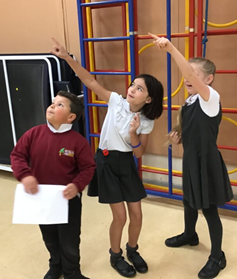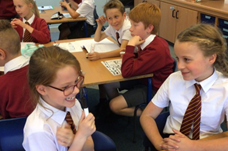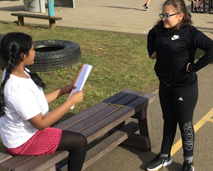Spoken Language

The spoken language is crucial for successfully navigating social interactions and different cultural contexts. Strong oracy skills enable children and young people to express their feelings, advocate for their beliefs, and build and maintain healthy relationships. Through our commitment to embedding opportunities for children to develop their use of the spoken language, we strive to equip children with the confidence to speak up and speak out.
Working with our children to develop their spoken language is vitally important throughout their primary years. Children not only learn how to talk, listen and communicate; but also through talking, listening and communicating; and about talk, listening and communication. Teachers incorporate regular tasks which allow children to improve their speaking and listening skills. Children are given regular opportunities to articulate their thoughts and ideas with their peers.
Discussion is used in lessons to enable children to share their views and listen to others. Through these tasks, children develop an understanding of how to react or respond to others too. This may be in paired, group or whole class scenarios. In lessons, teachers are keen to ask open questions which enable children to debate and promote discussion with others; they also use stem sentences to encourage the children to respond in full, reasoned sentences across the curriculum. Drama activities are incorporated into lessons, enabling children to take-on roles, perform and evaluate others’ performances. Children often rehearse then present their work to a group or the whole class. Opportunities are given to all to take part in year group performances, allowing children to understand what is needed when they are performing to others.




